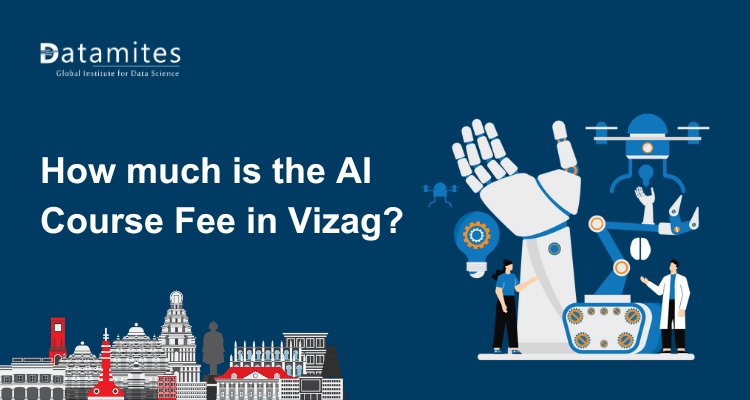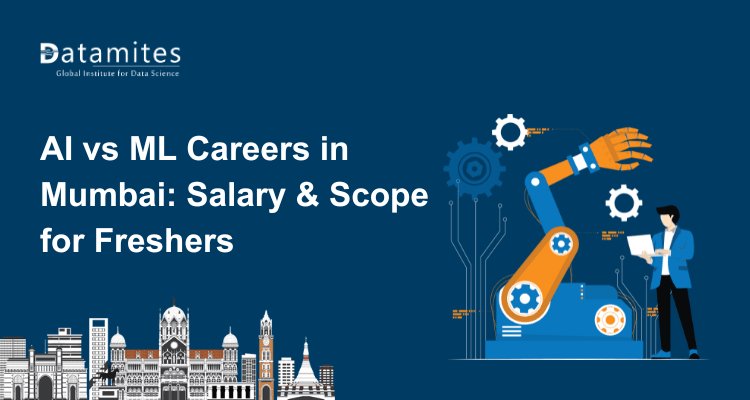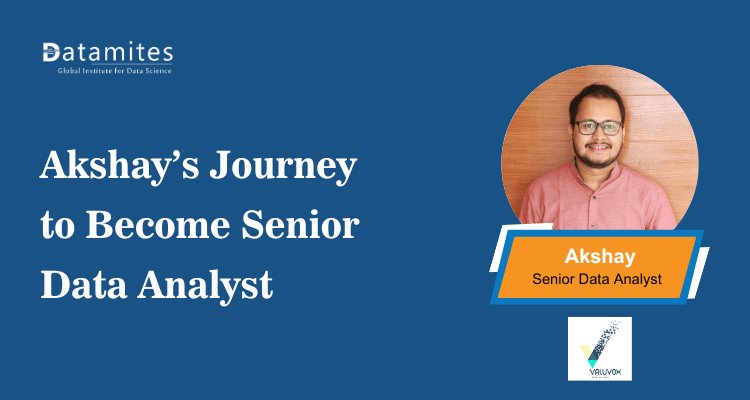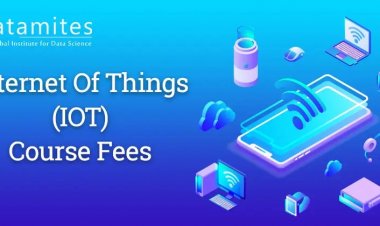How Data Science is Shaping the Healthcare Industry
Data science is revolutionizing healthcare by enabling predictive analytics, personalized treatments, and faster diagnoses. Through advanced data analysis, it’s improving patient outcomes and optimizing medical operations.
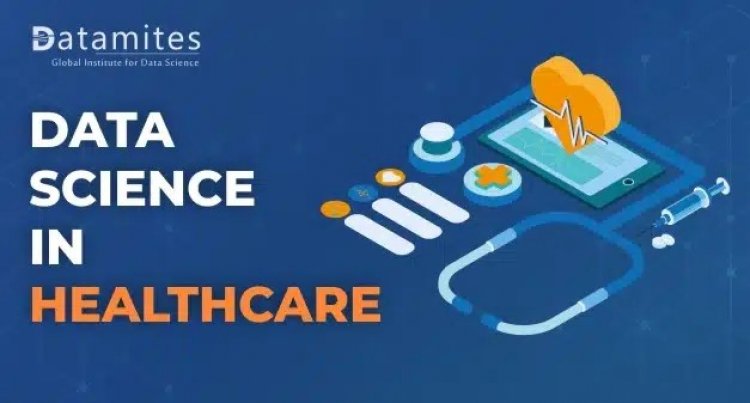
The healthcare industry is undergoing a major transformation through data-driven innovation. With the rise of digital medical records, wearable devices, and real-time monitoring, healthcare has become one of the most data-rich fields. The role of data science in healthcare is reshaping how diseases are diagnosed, treatments are delivered, and outcomes are predicted.
As hospitals and health-tech companies increasingly rely on healthcare data analytics, the demand for data science professionals continues to grow. Many are now pursuing a career in data science by enrolling in specialized data science courses and training to build the skills in data science needed to meet this demand.
The Evolution and Growth of Data Science in Healthcare
The integration of data science in health has evolved dramatically over the past decade. Initially used for basic reporting, data science is now central to clinical research, patient care optimization, and operational efficiency. Over the past decade, healthcare has shifted from paper-based systems to electronic health records (EHRs), generating vast amounts of data. This digital transformation has opened the door for data science in healthcare, moving beyond simple reporting to advanced analytics using modern data science tools. With real-time insights now possible, the industry is leveraging this data to improve decision-making and patient outcomes.
Historically, only a small fraction of healthcare data—despite accounting for nearly 30% of the world’s total data—was used meaningfully. That’s changing rapidly. With the rise of machine learning, predictive analytics in healthcare, and AI diagnostics, hospitals can now detect health risks, personalize treatment, and optimize operations. In fact, over 60% of healthcare organizations are actively investing in AI to forecast trends and meet rising demands.
The growth reflects a booming market. According to Grand View Research, the healthcare data analytics market was valued at $23 billion in 2020 and is projected to surpass $80 billion by 2030. This rapid expansion is encouraging professionals to enroll in data science courses and build essential skills in data science. As the demand for data science grows, so do opportunities for a rewarding career in data science within the healthcare sector.
Refer these articles:
- Data Science and Automation: Will AI Replace Data Scientists
- Top Data Science Trends to Watch
- How Generative AI is Changing the Role of Data Scientists
Benefits of Data Science in Health Care
The impact of data science in healthcare is both profound and wide-reaching. From diagnosis to treatment, here are key benefits it brings to the industry:
Enhanced Patient Diagnosis
By leveraging large datasets, data science in healthcare helps doctors identify diseases faster and more accurately. Algorithms trained on thousands of radiology images can detect cancers and other conditions earlier than ever before.
Personalized Treatment Plans
Using applications of data science, clinicians can tailor treatments based on a patient's genetic makeup, medical history, and lifestyle. This is central to the emerging field of precision medicine.
Reduced Healthcare Costs
Hospitals and health systems use healthcare data analytics to reduce unnecessary tests, avoid duplications, and predict high-risk patients—resulting in cost savings and improved care.
Efficient Hospital Operations
From patient scheduling to inventory management, data science tools help administrators make informed decisions that improve workflows and reduce waiting times.
Preventive Care and Risk Management
Predictive analytics in healthcare helps identify individuals at risk of chronic diseases such as diabetes or heart failure, enabling early intervention and reducing long-term health burdens.
These benefits highlight why professionals are increasingly turning to data science courses, including offline data science courses, to build relevant expertise for healthcare environments.
Refer these articles:
- How the Financial Sector is Leveraging Data Science
- Why Do You Need Data Science for Business
- Leveraging Data Science to Logistics Industry
Applications and Real-World Use Cases of Data Science in Healthcare
Let’s explore some practical applications of data science in healthcare that are changing the way the industry functions:
Disease Prediction and Risk Assessment
Data science predicts diseases early by analyzing patient records, lifestyle, and genetics. Mount Sinai Hospital uses AI to detect sepsis up to 48 hours before symptoms appear, enabling timely intervention. This reduces complications, saves lives, and highlights the role of predictive analytics in healthcare.
Medical Imaging and Diagnostics
Machine learning enhances diagnostic accuracy in radiology by reading X-rays, MRIs, and other medical images with high precision. Google Health’s AI detects breast cancer in mammograms more accurately than radiologists, reducing false positives. With deep learning, results are faster and more reliable—boosting early detection, speeding up diagnoses, and significantly improving patient outcomes.
Drug Discovery and Development
AI speeds up drug discovery by analyzing complex chemical and biological data. Atomwise used deep learning to identify potential Ebola treatments in days. By simulating drug reactions before trials, machine learning cuts R&D time, reduces costs, and accelerates the delivery of life-saving medications.
Personalized Treatment (Precision Medicine)
Data science enables customized treatments based on genetics and patient history. IBM Watson for Oncology offers cancer therapy suggestions by analyzing vast medical data. This form of precision medicine ensures higher effectiveness, fewer side effects, and a better overall experience for individual patients.
Remote Patient Monitoring (RPM)
Wearables like Apple Watch and Fitbit collect real-time vitals, enabling remote monitoring. Data science tools analyze this information to alert physicians of health issues. This helps manage chronic diseases efficiently, prevents emergencies, and empowers patients to take control of their own health.
Hospital Operations and Resource Management
Hospitals use data science for forecasting patient flow and optimizing resources. Johns Hopkins Hospital uses a command center powered by predictive analytics to manage ICU beds and ER wait times. This improves efficiency, reduces costs, and enhances the quality of patient care.
Epidemic and Pandemic Forecasting
AI models analyze global health data to detect disease outbreaks. BlueDot identified the COVID-19 threat before official announcements by scanning global news and travel data. This application of healthcare data analytics supports timely responses and better planning during global health crises.
Fraud Detection and Claims Optimization
Machine learning detects anomalies in billing and insurance claims. UnitedHealth Group uses AI to flag suspicious activity, preventing fraud and saving millions annually. These data science tools promote transparency, efficiency, and integrity within healthcare systems and insurance providers.
Mental Health Monitoring
Behavioral data from smartphones is analyzed to track mental health. Apps like Ginger.io detect signs of anxiety and depression based on usage patterns and movement. This enables early intervention and offers continuous, discreet support to individuals without requiring in-person visits.
Clinical Decision Support Systems (CDSS)
CDSS tools help doctors make informed decisions using patient data. Epic Systems integrates real-time alerts on drug interactions, risk scores, and test recommendations. These applications of data science in healthcare reduce errors, improve treatment accuracy, and enhance overall patient safety.
These ten applications show how data science is revolutionizing healthcare—from accurate diagnosis to better patient care. As the field grows more data-driven, gaining strong data science skills from a best data science institute is essential for a successful career in data science.
Refer these articles:
The future of data science in healthcare is promising, from personalized medicine to streamlined operations and faster drug discovery. As applications of data science grow, so do opportunities for skilled professionals. Whether you're in healthcare or tech, gaining data science skills from a top data science institute in Ahmedabad, can help you make a real impact. The role of data science in healthcare is transforming lives and shaping a smarter, healthier future.
Among the top institutions advancing data science education, DataMites Institute stands out as a preferred choice for aspiring professionals in the healthcare and tech sectors. Known for its industry-aligned curriculum, practical training, and real-time internship opportunities, DataMites effectively bridges the gap between theoretical knowledge and hands-on experience—crucial for roles involving data science in healthcare.
The institute offers Certified Data Scientist programs accredited by IABAC and NASSCOM FutureSkills, ensuring learners gain expertise in data science tools, machine learning, and advanced analytics—skills that are highly relevant to modern healthcare applications, from predictive analytics in healthcare to AI-driven diagnostics.
For those who prefer in-person learning, DataMites provides offline data science courses in Pune, Bangalore, Hyderabad, Chennai, Ahmedabad, Coimbatore, and Mumbai. It also caters to global learners with flexible online data science training options. Whether you're entering the field or upskilling for a growing career in data science, DataMites delivers the practical, job-ready skills needed to grow in today’s data-driven healthcare landscape.
What is Box Plot – Data Science Terminologies
What is Correlation – Data Science Terminologies



